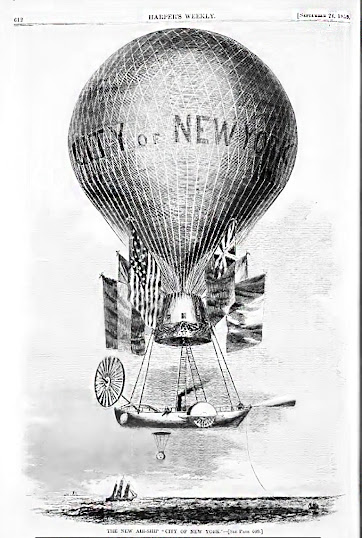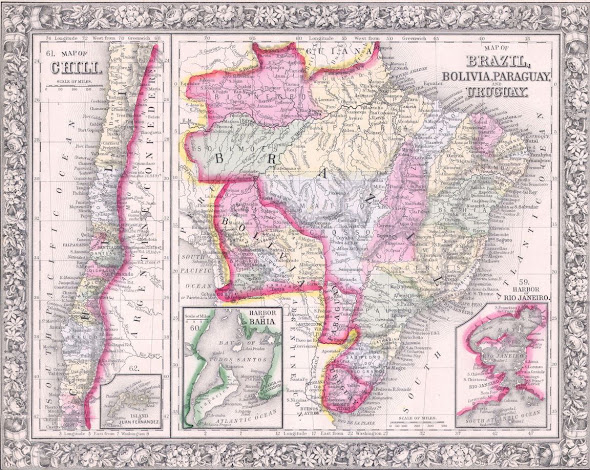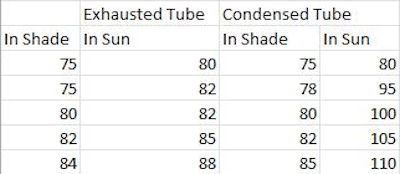Socialism in Arkansas 1858
"Socialism in Arkansas"
1858
As you can read in the two excerpts from newspapers below, socialism was once acceptable in Arkansas as long as it did not promote abolitionists and "...other isms, germinating in the north."
Utopian communities of all sorts were promoted in the twenty years before the Civil War and the two decades following. The most enduring of these was the Amana group in Iowa, founded in 1840. Amana morphed from an agricultural commune into a manufacturing commune. Eventually, it was sold to corporate America and endures today as a brand of microwaves sold in the US.
Over the next several weeks, I'll take a look at some of the more interesting and/or exemplary specimens of ante bellum utopians.
There were "free love" communities with varying definitions of "free love." Most of the definitions of "free love," would strike the modern viewer as simply common sense or civil rights--women should be allowed to work outside the home, work for equal wages, marry or divorce whom they please, own property, vote, and even wear pants. (see my blog entry "Another Girl in Pants"
Politics was not the only Utopian vision preached as the cure for all the ills of mankind. Vegans, and various medical cures attracted large group followings. James Caleb Jackson founded one of the largest followings promoting the "hydro-cure," based on the proposition that temperance and pure water could solve many of humanity's health and social problems. His daughter became a medical doctor for the community and even wore pants.
"Free Love In Sandusky, Ohio 1858" and "James Caleb Jackson and the Hydro Cure" are additional topics I've researched for future blog entries.
Meanwhile, the socialists in Arkansas promote the following "free love" position: "In every department the sexes mingling in their work, their studies, or their pay—making all work easy and active—all studies entered into with zeal, from this natural and beautiful rivalry that would warm the young blood, and give a lofty ambition to make all of life possible."
Practical Socialism
Much discussion has been had during the last half century
touching local condition of civilized man. Attempts, too, have been
repeatedly made to better the social condition, but all have hitherto proved
fleeting and transitory. Still all these attempts have had their uses in
teaching us wisdom.
It
is not intended in this circular to inquire into the causes of such failures,
but merely to point out another method, which, we think, will strike the mark
much more easily and effectively than any hitherto attempted, and more suitable
to the minds and condition of present society—involving no extra expense, and,
above all, jeopardizing no amount of confidence between man
and man—a commodity most lamentably below par, in almost every respect, in the
present age; indeed, it is well-nigh annihilated—those whom we have accustomed
to look up to as the greatest, the wisest, the most prominent among us, obliged
to turn traitors to their fellow-men, so that man can now scarcely trust his
next neighbor, and our heads high in the clouds, too, about “morality!”
In
such a condition of things, the undersigned conclude, that all attempts to
actualize the practical philosophy of the renowned Fourier, or the still more
philanthropic communism of Robert Owen, by the people of the present day, must
necessarily eventuate in failure—a conclusion this, much against our best
aspirations.
The
lady editor of the Vanguard, of June 26 ult. Says:
“In
spite of everything, those who live in society as it is, will find in bringing
up their families a thousand influences outside to counteract the little
influence they can exert at home. Is there no remedy? Is their no way of bringing
up our sons and daughters alike strong and healthy? Will it be said that it is
an impossibility so as to train our sons as to be brave for the right?
Yes,
there is a way—there is a ‘city of refuge’ where the parents’ influence may be
paramount over false customs—where the sister and brother may ramble together,
adopting just such plays as they choose, and where no inferiority will ever be
instilled into the boys’ mind, where refinement and gentleness now laughed out
of the masculine character, and the strength and capacity of endurance crushed
out of the feminine by fashion and custom, are allowed in their natural scope.
Here
is a position of things which it would be folly to deny, and also a remedy
suggested. And the undersigned, who have had precisely the same ideas of these
things for a number of years past, have now ventured to strike out upon this
path, and here invite the attention of their brother reformers—for to none
other can we be hopeful.
The
undersigned, then, having purchased, and paid for, 280 acres of the finest land
in northwestern Arkansas, at one dollar per acre, do now invite their friends
to come and share it with them. They will parcel it out in 20 acres
to each individual or family at the same price, making due allowance for any
improvement now making or hereafter be made, at the cost of the same, with
expense of deed, etc. And as there are thousands of acres around
lying vacant, they can add to their little patrimony at convenience as their
means increase.
Here,
then, is a nucleus—a starting point for reformers, by which they can easily
neutralize the difficulties of present surroundings, and with no risk to
themselves of that breach of confidence above mentioned, or in any other respect.
A
party went out in the spring to satisfy themselves as to the quality of the
soil, climate, etc., and returned perfectly satisfied in every respect, chose a
location as above stated before their return. Their report will be found in the
Cincinnati Dollar Times of 3d June, and also in the Richmond Vanguard of May
2oth and June 5th. We will give a few extracts from the latter
paper:
“The
mountain ridges abound in the building stone. Springs of pure soft water are
abundant. Wells of such water can be had by digging 16 to 20 feet.
The roads are remarkably good in all this region. Good pine lumber can be had
eight miles distant for $10 per thousand. A railroad is now laid off from
Little Rock to Fort Smith, along the Arkansas River, passing near this mountain
which will likely be in operation in 3 or 4 years. Another railroad is now in
progress between Little Rock and Memphis and also Little Rock and Cairo,
portions of which are completed. When these are in operation, we shall direct
communication with the east.
Dry
goods of all kinds, in this region, rate high—on an average of 100 per cent
above Cincinnati retail prices. Persons coming here should bring their working
implements.
The
object of this movement is to secure to liberal persons homes based on the soil
in a body of cheap land, available to the people of small means, that those who
desire can locate in close proximity, and co-operate as far as
practicable. In this way many of the economies of communistic life
can be secured, while at the same time the experiment would rest on a safe
basis. It should be understood that speculation in any of its forms
will not be countenanced. Those who come here should have higher purposes to
subserve than personal aggrandizement.
Many
are anxiously waiting to do something, the opportunity to act has now presented
itself. Let such study the objects of this enterprise, and, if interested, lend
a helping hand. We work for humanity by endeavoring to place ourselves in the
best position to act out our interior promptings. We shall secure the material
first, then the spiritual and intuitional.
There
will be different grades of reformers here, and many differences of opinion
will exist; but we shall tolerate each other. This diversity of mind will tend
to promote mental activity, and in many ways promote the objects of this
enterprise. Those who wish it, can form affinitized groups. Everyone will be
free, so far as the external circumstances of life will admit.”
In an article in “The Age of Reform,” July 29th ult.,
under the caption of “What We Want,” the talented editor shows forth the
necessities and beauties of the co-operative system, compared with the
isolated, in a very comprehensive yet brief statement of facts, which, one
would think, have only to be read to be put in practice. All those
who wish humanity well should read it. The whole article does honor to the head
and heart of the amiable writer—We have only a space for a short extract;
“I
have made the property idea prominent because the pecuniary independence of
individuals is the basis on which to build a superstructure of freedom—the
basis of woman’s emancipation, and the foundation of all true
growth. So the sensible plan to me of now attaining what our souls are
reaching {and which there has been so many years spent in merely theorizing
upon}is co-operative individualism—separate means with unity of interest and
design—different departments carried on distinctly and apart, by persons or
groups, as the case may be, and each person credited for the work he may
do—each paying for all he may consume.
A
domain thus owned and held by many or few, for the use of all, under the
superintendence of practical farmers—each department of agriculture or
horticulture under the daily care of one fitted for and loving his mission,
securing such helpers as are attracted to each particular vocation, and being
responsible for work done as a master-builder directs his workmen and is
responsible for all.
In
every department the sexes mingling in their work, their studies, or their
pay—making all work easy and active—all studies entered into with zeal, from
this natural and beautiful rivalry that would warm the young blood, and give a
lofty ambition to make all of life possible.
“I
would have no interest on capital, but investments made, each holding his own
property (temporarily sunk, as it were) in fee simple, earning his daily needs
like the others—paying and being paid for all he may have or do—each treating
every other with a courtesy and care due between refined and cultivated people
who are striving to reach a better life through higher and more beautiful
social condition.
Again—“Most
persons have a forte, or at least some thing or things they
can do better than anything else, and better than some other person can do
them. We must learn to accept of teachers—we should be
willing to have leaders in the true and noble sense of the term. Having
our own way (as it is termed) in every little matter of life, is not
individuality; he is often the freest and most fully himself—certainly
the most happy—who can gracefully and joyously wave his own thought or opinion to
meet the greatest good of all.
From these extracts,
and by reference to the above papers, will be seen the quality of soil,
climate, etc., etc., quite enough to satisfy the most fastidious. The greatest
drawback is there being no market near; and that is one efficient reason why
land-speculators have not as yet fixed their iron grip upon that beautiful
region, and has given poor reformers a chance, and a good chance, too. True,
all Western states and Territories were in much the same condition as t markets
until railroads created them. Even so will it be our pretty Ozark region in
good time if people can muster sufficient patience to wait.
In
fine, isolation we have had our fill of—quite enough and to spare. We are sick
unto death of it, and all its cold uncharitableness and unmitigated slavery. We
shall have no more of it—that is those who choose to coalesce with us, and
those who don’t we shall leave alone in their glory! And if, as Mahomet says,
“the mountain won’t come to us, we shall go to the mountain!”
Shut
out as we are, by the fell demon of speculation, from all the portions of God’s
heritage nearer home, by the fictitious value put upon land by the impious
rapacity of tyrant man—land which is not his to sell—which he never created a
foot of, we are thus driven to a distance—from among all those whom we hold
dear. But it shall not always be so—Reaction must take place sooner or later.
All
letters, requiring further information as above (include a postage stamp) will
be answer by either of the undersigned.
Edward Caffary,
Cincinnati
Oliver Peppard,
Cincinnati
Wm. McDiarmid, Times
Office Cincinnati





Comments
Post a Comment